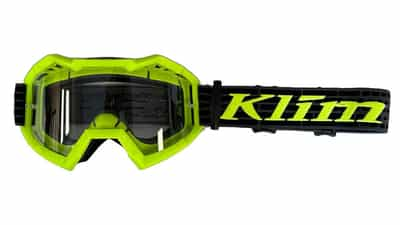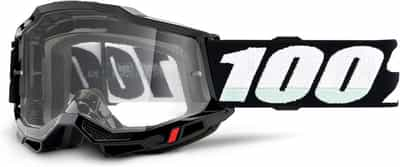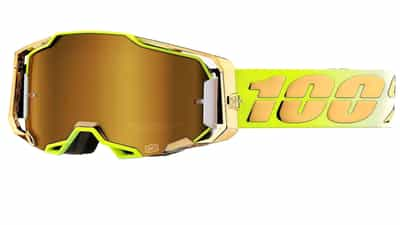 Disclosure: RIDE Adventures is a participant in the Amazon Services LLC Associates Program as well as other affiliate programs, designed to provide a means for us to earn fees by linking to Amazon and affiliated sites at no extra cost to you. Please see our Disclosure for more details.
Disclosure: RIDE Adventures is a participant in the Amazon Services LLC Associates Program as well as other affiliate programs, designed to provide a means for us to earn fees by linking to Amazon and affiliated sites at no extra cost to you. Please see our Disclosure for more details.
More air for your face, less dust for your eyes: What's not to love? Motorcycle goggles are a no-brainer for off-road riding. Here's how to choose your next pair.
Adventure riders cover a lot of ground. If you're anything like us, a decent portion of that ground alternates between dust, sand, and mud, all of which are things you want to keep out of your precious peepers.
In addition to being downright annoying and a sizable safety concern, getting too much dust or sand in your eyes can lead to painful corneal abrasions.
In addition to being itchy and unpleasant, these injuries also come with the unwelcome benefit of looking aggressively stoned for the better part of three straight days.
 "There's a reason the pros wear eye-pro in the dirt" photo: Ducati
"There's a reason the pros wear eye-pro in the dirt" photo: Ducati The right pair of motorcycle goggles will protect your eyes, but can also boost contrast and visibility in sub-prime conditions.
They'll keep sweat out of your eyes and get more fresh air circulating into your helmet (both on road and off), which makes them particularly sweet for hot days around town.
Motorcycle Goggles Quick List
| Goggles: | Summary: | Price: |
| Premium construction and a near universal fit at an affordable price. | CHECK PRICE | |
| Professional level off-road racing goggle with all the bells and whistles. | CHECK PRICE | |
|
|
Great performance, comfort, and optics on a budget. | CHECK PRICE |
| Klim's flagship goggle with a massive field of vision and fast-swapping magnetic lenses. | CHECK PRICE | |
|
|
Race-ready goggle with outstanding optics, great airflow, and a premium fit. | CHECK PRICE |
| Offers a healthy assortment of pro-level features for less cash. | CHECK PRICE | |
| Mid-tier goggle with features and performance that punch well above their asking price. | CHECK PRICE |
What to Look For in Motorcycle Goggles
Motorcycle goggles come in all shapes, sizes, and price points. Unfortunately many of them look damn similar (several even share the exact same lenses), so knowing what works and what doesn't for both your riding style and your helmet of choice can be tough to figure out from behind a keyboard.
To that end, here are a few of the main features we look for when choosing a pair of motorcycle goggles for ourselves.
Size and Fitment
In a perfect world, anyone looking to wear motorcycle goggles would buy the same top-shelf goggles used in off-road competitions like motocross or desert rally.
Unfortunately, those goggles are made specifically for dirt-focused lids, which often means they're too large for street and/or adventure motorcycle helmets.
There aren't any hard-and-fast size standards when it comes to motorcycle goggles, but there are definitely some we'd call "small frame" and others we'd call "large frame."

Most adventure riders and/or dual sport junkies will likely need to stick with smaller frame goggles, as they're much more likely to fit into the viewport of your helmet, especially when working around a flippable face shield.
This also goes for motorcycle goggles featuring outriggers, which are the extended strap holders you'll often see in motocross or enduro goggles.
Outriggers are great because they allow your goggles to sit deeper inside the helmet and therefore closer to your face, but many adventure helmets simply don't have enough space to fit these larger goggles, especially if you want to be able to raise and lower your face shield on the fly.
 Photo: Ducati
Photo: DucatiYou'll want to do a little independent research on this point to ensure your helmet of choice is compatible with your goggles of choice.
If you can fit a larger framed goggle with outriggers into your helmet, more power to you (these features typically offer the widest field of vision and the best seal against your face), but most of us will be relegated to simpler options and should shop accordingly.
Ventilation & Moisture Management
Offroad riding is much more active than typical road riding: You're moving around on the bike, standing up on the pegs, and putting a lot more effort than you would on a typical road tour.
For that reason we've found that one of the major differences between cheap motorcycle goggles and a truly great pair is ventilation. Offroad work is sweaty, but a good pair of goggles will both wick and dispel moisture faster than you can make it.
Two main factors effect how well a goggle handles moisture: The foam around your face, and the open areas around the frame of the goggle.
 "Here's a pair of super-frugal 100% Strata 2 goggles next to a pair of Pro Grip Vistas. Note the larger eyeport vents and dual foam layer of the Pro Grips."
"Here's a pair of super-frugal 100% Strata 2 goggles next to a pair of Pro Grip Vistas. Note the larger eyeport vents and dual foam layer of the Pro Grips."As for the face foam, premium goggles typically use two if not three layers of multi-density foam, all of which work together to ensure a good comfortable fit around your face while also providing the most effective moisture-wicking possible as sweat drips down from your brow.
You'll also typically find a strip of wicking fabric adhered to the outside of this foam, which provides a softer feel against the skin.
In terms of the frame vents, the best motorcycle goggles have large openings distributed around the perimeter of the goggle, which are then covered with a simple thin layer of foam to allow air to flow while also filtering out fine dust and debris.
More premium designs will incorporate larger and more free-flowing channels between the outer goggle and your face, which further boost moisture management and fog prevention.
Lens Options
There's more to choosing a lens for your motorcycle goggles than finding a color to match your style.
Dark tinted and/or mirrored lenses help keep glare down in bright sunlight, certain colored lenses like yellow, pink, and blue help to increase contrast and make terrain more visible, and good ol' fashioned clear lenses simply "get the job done' night or day.
In addition to the color of your lenses, you'll also want to consider how easily they can be swapped on the fly (dark tint won't do you any favors if you get caught out after dark), how well they resist impacts and scratches (because roost happens), and how well they resist fogging.
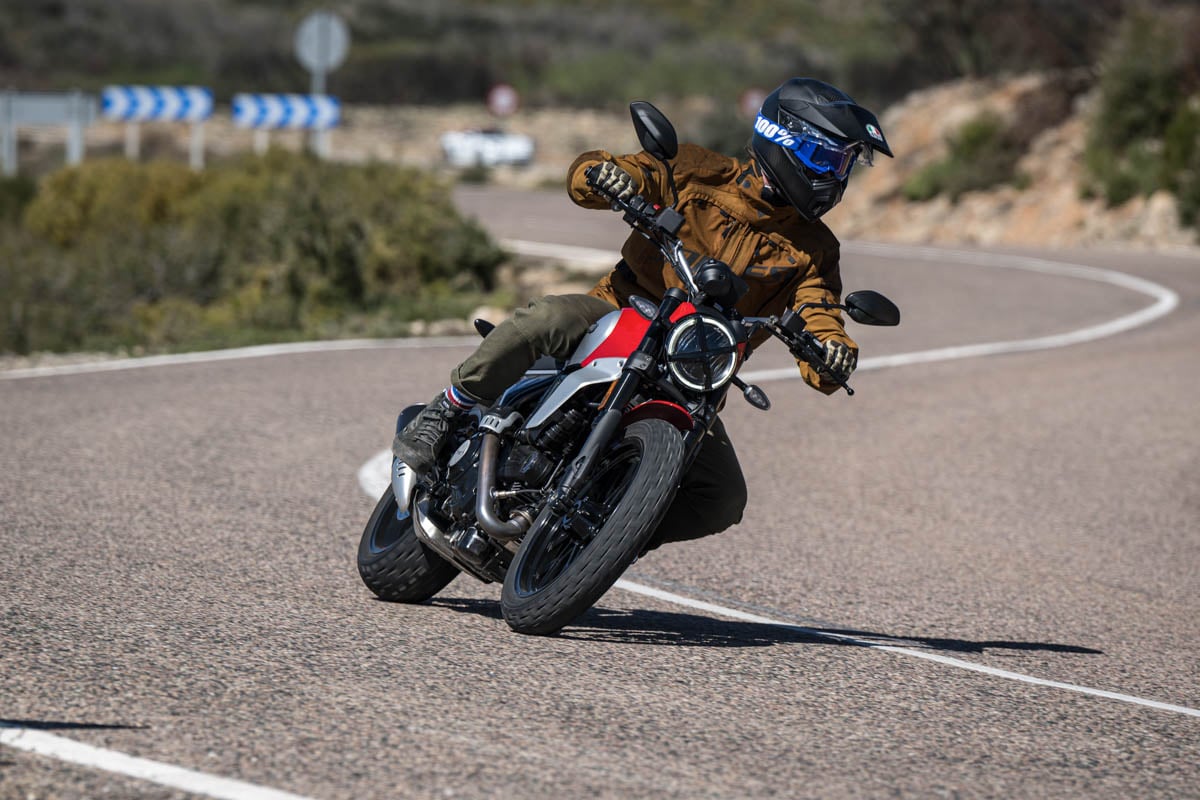 "Goggles are mainly an offroad consideration, but they're great for extra airflow on the street too." photo: Ducati
"Goggles are mainly an offroad consideration, but they're great for extra airflow on the street too." photo: DucatiFinally, if you intend to do any racing, aggressive trail riding, or just riding in particularly sloppy conditions, you'll also want to consider getting a lens for your motorcycle goggles that's compatible with tear-offs.
If you're not familiar with tear-offs, they're essentially single-use plastic lens covers that can be stacked over the lens of your goggles and then "torn off" on the fly as they get caked with dirt.
Most adventure riders have little or no use for tear-offs day to day, but it's always nice to have the option.
Our Top Picks for Motorcycle Goggles
Keeping the above factors in mind, we have a few goggles we've come to love over the last few years that fit the bill better than most. This list is by no means exhaustive, but if we were buying a new pair today, here's where we'd spend our money.
1. Klim Viper
Who said all Klim gear was costly? The Klim Viper is one of our favorite budget-friendly motorcycle goggles on the market, delivering top-shelf features on a bottom-shelf budget.
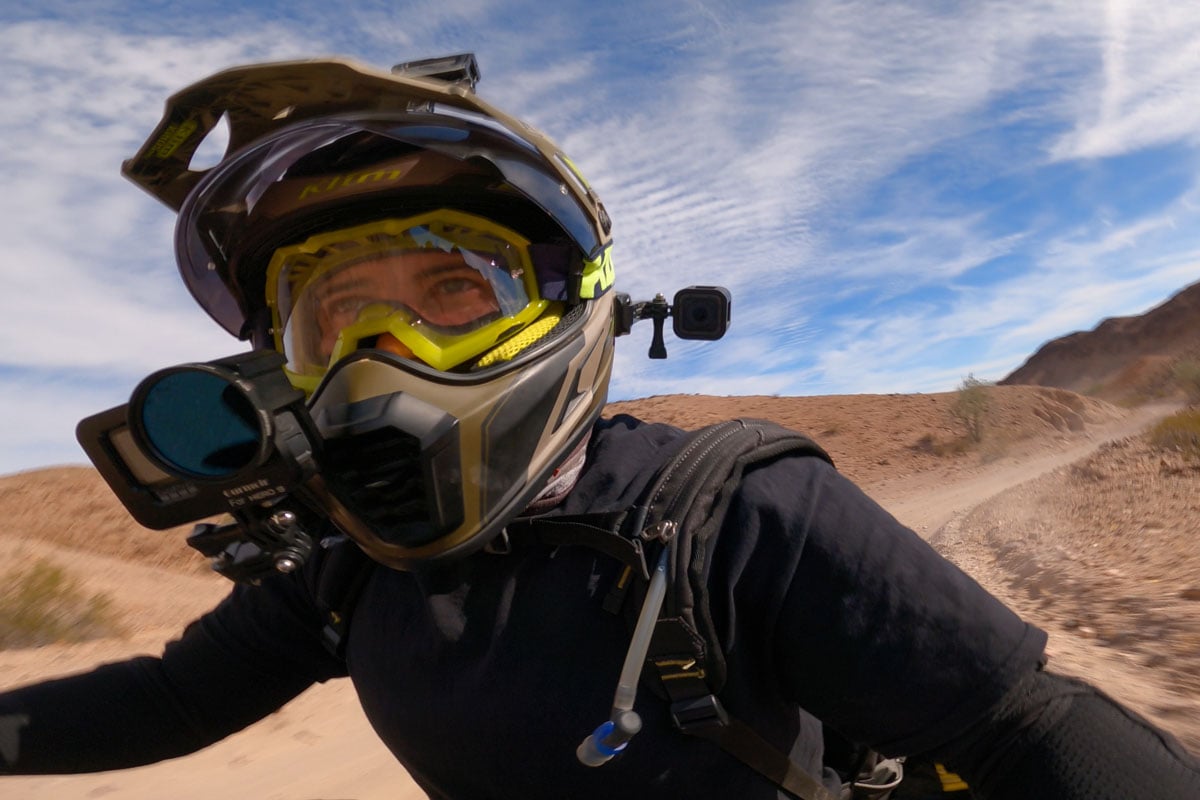
"Garrett blazing down Southern California BDR while testing out the Vipers"
Our favorite feature of the Viper is that for under $50, you're getting the same premium three-layer foam system found on their flagship motorcycle goggles.
This "Foam3+" design combines a soft antimicrobial face fabric with a layer of soft and extremely absorbent foam, then adds a more dense layer of foam around the frame of the goggle for added longevity.
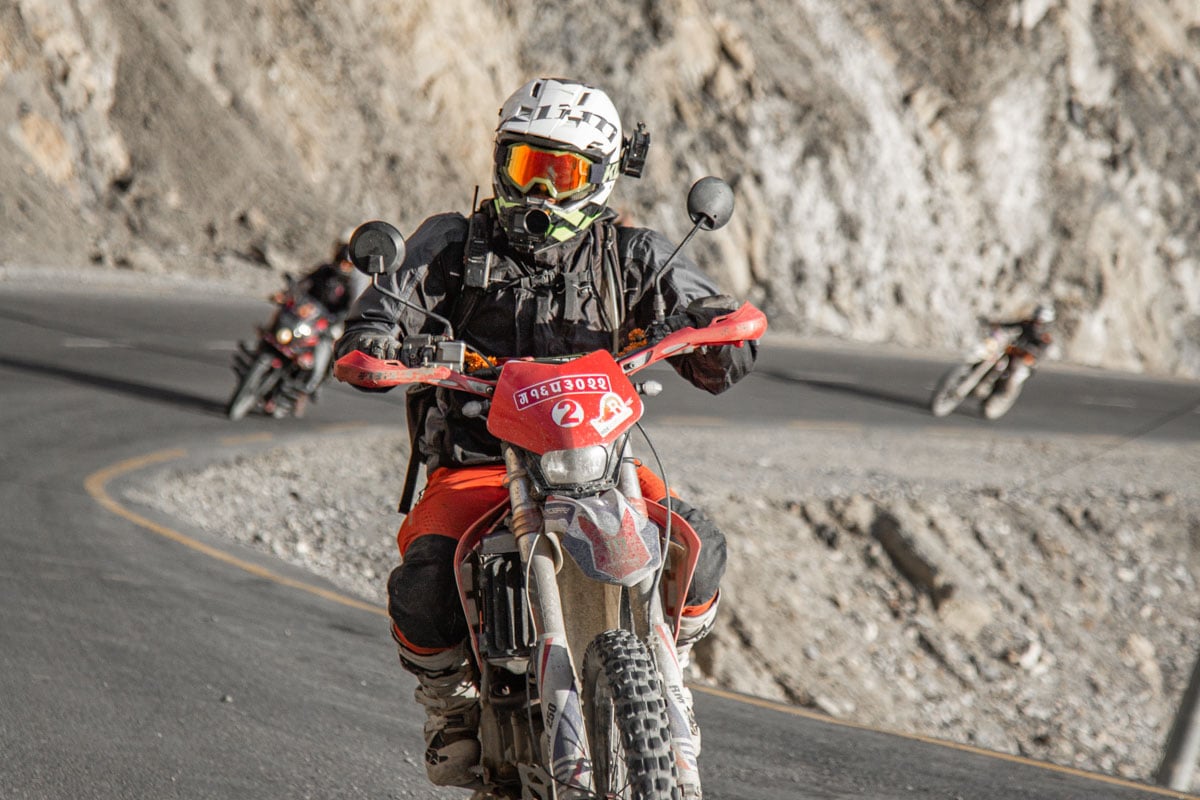 "Garrett again with the Vipers but with a red mirrored lens while developing routes for us in Nepal"
"Garrett again with the Vipers but with a red mirrored lens while developing routes for us in Nepal"
We'll also note that the Viper uses the most compact frame of Klim's lineup, forgoing the extra-wide straps and large outriggers of other models in favor of a near-universal fitment with any helmet.
Combine that with a scratch and UV-resistant polycarb lens, and you really can't go wrong for the money here.
PROS |
CONS |
|
|
CHECK PRICE:
Klim Viper Motorcycle Goggles
2. Alpinestars Supertech Goggles
Alpinestars and off-road go hand-in-hand, and their helmets, boots, and adventure kits have been favorites of ours for years.
This year marks the first time in history that Alpinestars have gotten into the motorcycle goggle game though, and they've absolutely knocked it out of the park.
The Supertech is Alpinestars' flagship goggle in the lineup, and we're happy to report they lack for absolutely nothing. With a massive field of vision, three-layer contoured foam, and integrated outriggers, these goggles fit like a glove and flow air with the best in the business.

We're also particularly impressed by the Supertech's insanely fast and easy lens swap system, which employs a sliding tab on either end of the goggle to release/secure new lenses in all of ten seconds.
AStars' "Absolute Vision" lenses are equally impressive, providing such clarity and contrast that it feels like seeing the world in HD for the first time.
There's one drawback to the Supertech, and we'll give you one guess as to what it might be. $130 is a lot of money, but for what it's worth, the Supertech might be the best goggle on the market right now.
PROS |
CONS |
|
|
CHECK PRICE:
Alpinestars Supertech Goggle
3. 100% Accuri 2
While 100%'s Strata 2 goggle is arguably the most popular motorcycle goggle on a budget currently available, we can't recommend stepping up to the Accuri 2 enthusiastically enough.
For an extra $10-20, you're upgrading to three-layer face foam, a thicker and more secure strap, and improved ventilation thanks to the addition of two vents to the front of the goggle frame.
 "The Strata 2 motorcycle goggles in action" photo: Ducati
"The Strata 2 motorcycle goggles in action" photo: DucatiWe've owned both models and while the Strata 2 is a great option on an absolute shoestring budget, the Accuri 2 is by far the better deal in our eyes.
We'll also note that 100% uses the exact same lenses found in their more expensive Racecraft 2 goggle in both the Accuri and Stata offerings, which means you can get the same great clarity and field of vision for a lot less money.
Unlike the Racecraft, however, the Accuri 2 doesn't feature outriggers, so we've been able to fit it into every adventure helmet we've tested to date from the budget-friendly Bell MX9 ADV to the super-premium AGV AX9 Carbon.
PROS |
CONS |
|
|
CHECK PRICE:
100% Accuri 2 Goggles
4. Klim Edge Goggle
It's no secret we love a photochromatic lens here at Ride Adventures, and this year the Klim Edge goggle with the photochromic treatment might be our favorite setup to date.
Klim's injection-molded cylindrical lenses were alright near perfect, but the auto-dim feature is a game changer.
 "Garrett testing out the edge with the photochromic lens while out scouting routes in Tanzania"
"Garrett testing out the edge with the photochromic lens while out scouting routes in Tanzania"In addition to the lens itself, we also love the Edge because it sports a frameless design (something you'll often see in snow goggles), which creates a massive field of view with minimal obstruction from the eyeport.
This also allows Klim to utilize a magnetic quick-release for the lenses, which is about as convenient as it sounds.
Aside from that, we'll note the face foam seals well and does a great job of pulling sweat, while the compact strap attachments and removable nose guard allow the Edge to fit inside most adventure helmets with ease.

As is often the case with goggles like these, the main issue is price, as the Edge's $130-140 asking price is right up there with other best-in-class offerings.
The photochromatic lens will set you back another $40 on top of that, although we can't imagine going back to anything else ourselves.
PROS |
CONS |
|
|
CHECK PRICE:
Klim Edge Goggles
5. 100% Armega
If you want for the cream of crop when it comes to motorcycle goggles, you need look no further than the 100% Armega. This is a top-spec race goggle that lacks nothing in terms of features and technology, and a tough one to beat from an outright performance standpoint.
You name it, you'll find it here. Ultra high-definition injection-molded lenses, a quick-release lens swap system, massive intake and exhaust ports for ventilation, and even a removable nose guard for the roost-adverse.
The optical clarity and field of vision on offer here are downright impressive, but what really sets the Armega apart is its moisture management.
Using a combination of perforated three-layer foam and a unique molded "sweat channel" between two layers of the frame, the Armega is arguably the closest thing to a sweat-proof goggle money can buy, which will be worth every penny for hardcore offroaders.
PROS |
CONS |
|
|
CHECK PRICE:
100% Armega Goggles
6. Leatt Velocity 6.5
We've come to think of Leatt's latest Velocity 6.5 as an attractive "premium on a budget" alternative to some of the flagship offerings above. The 6.5 is loaded with premium features, yet retails for about $100 anywhere and everywhere.

For your money you're getting triple-layer foam that's completely removable and washable, hinged outriggers that double as a clip-in system for lenses, a permanent anti-fog lens treatment, a removable nose guard... the list goes on. Leatt even includes tear-offs in the box at no extra charge.
Leatt is also the only brand out there that boasts bulletproof lenses in their goggles, and we do mean that literally as velocity lenses are tested to military ballistic standards.
Their field of vision is outstanding (a claimed 170° by Leatt), they're compatible with roll-offs for race use, and they're even designed to fit over prescription glasses.
The main drawback here is that if you are interested in upgrading to the photochromic treatment, you're looking at nearly double the cost of the standard version.
They're also a little on the tall side top to bottom, which means they'll be a tight fit in some adventure-style helmets.
PROS |
CONS |
|
|
CHECK PRICE:
Leatt Velocity 6.5
7. Alpinestars Vision 5 Goggle
If you want to get into Alpinestars' new lineup of goggles but don't want to shell out for the pro Supertech model, we've got good news for you: their mid-tier Vision 5 checks a lot of the same boxes, but does it for less than half the cash.
You're getting the same "A-Frame" contoured face shape, the same multi-layered foam and plush felt backing, and the same outstanding ventilation system.
The Vision 5 does away with the outriggers and the super-premium optics, but they still get a massive field of vision and are more likely to work with ADV and street-style helmets.
We also appreciate that the Vision 5 motorcycle goggles are compatible with Alpinestar's roll-off system, but also accept traditional tear-offs as well.
If you don't need race-level features, or optics, these are a great value, and still manage to flow air and wick sweat better than most.
The main downside to the Vision 5 offering is actually the fact that Alpinestars also sells a "Vision 8" for about $15 more, which include outriggers for an enhanced fit. The Vision 5 are lighter and more flexible though, so they get the nod from us.
PROS |
CONS |
|
|
CHECK PRICE:
Alpinestars Vision 5 Goggle
Closing Thoughts on Motorcycle Goggles…
Obviously we don't need to sell all the dirt junkies, hard-enduro enthusiasts, and motocross wizards out there on the utility of a good pair of motorcycle goggles.
For anyone else spending a decent amount of time exploring offroad, however, you're really missing out if you've yet to give goggles a chance.

As you've read above, a good pair of goggles can easily be the least expensive piece of gear in your kit, yet also one of the most useful. There are plenty of options out there that work flawlessly alongside helmets with face shields, even if you're already wearing a pair of glasses under your lid.
Pick up a pair, take 'em for a spin, and let us know what you think in the comments below.
Best Enduro Motorcycles in 2025
5 Best Motorcross Gloves for Trail and Track














